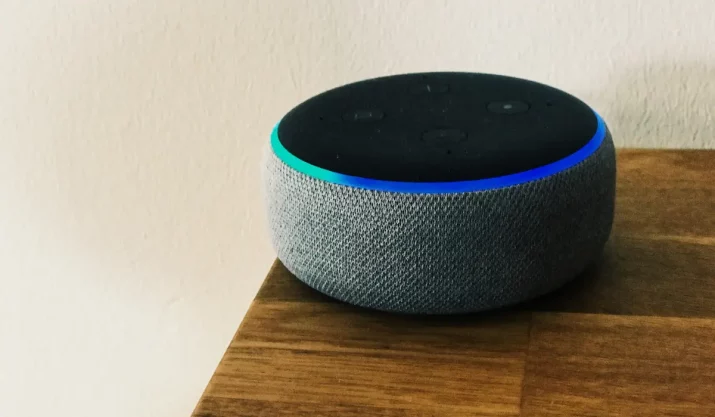Flexing the Brain: 9 Popular Apps to Improve Cognition

Table of Contents
According to a recent poll, 30% of Americans say they are “almost constantly” online.
That’s a lot of time spent staring at screens! But what if there were a way to use all that screen time to improve your cognition? Enter brain-training apps.
There are a ton of different brain-training apps on the market, promising everything from better memory to increased concentration.
But which ones actually deliver on their promises? Keep reading to find out about 9 popular brain-training apps and how they can help improve your cognition.
Key Takeaways
- As we get older, it’s important to take steps to improve our cognition—and while learning new skills and doing memory-building exercises can help, using your phone to do this can streamline your time.
- Luminosity and Elevate are two of the best apps to improve memory and cognitive function.
- If you want to reduce stress and get into a better state of mind, consider apps like Calm or Headspace.
9 Popular Apps to Improve Cognition
Improve Memory & Cognitive Function
As people age, it’s not uncommon for them to start experiencing some issues with their memory. Thankfully, there are a number of apps that can help improve memory and cognitive function.
- Luminosity
Luminosity is a brain training app that focuses on improving memory and cognitive function. The app includes a variety of games and exercises that are designed to challenge and improve your memory, attention, speed, flexibility, and problem-solving skills.
Luminosity also offers a personalized training program that adapts to your needs and goals, making sure you’re always challenged and making progress.
With over 50 million users worldwide, Luminosity is one of the most popular brain training apps available today. If you’re looking for an effective way to improve your memory and cognitive function, Luminosity is definitely worth checking out.
- Elevate
Elevate is a popular brain-training app that offers games and activities designed to improve critical cognitive skills like memory, focus, and processing speed. The app also provides personalized feedback on your progress and performance.
Elevate is free to download on iOS and Android devices, though you will have to pay for a subscription if you want access to all features.
- CogniFit Brain Fitness
CognifitBrain Fitness touts itself as being “like a gym for your brain.” The app offers more than 40 different exercises to help improve attention, mental agility, flexibility, and problem-solving ability, among other things.
You can also track your progress over time and compare your scores with other users. Cognifit is available for free on iOS and Android devices.
Reducing Stress & Anxiety
Stress and anxiety can have a serious impact on our cognitive function. They can make it difficult to concentrate, remember things, and process information. Fortunately, there are a number of apps that can help to reduce stress and anxiety levels.
- Calm
If you’re looking for an app to help you relax and reduce stress and anxiety, Calm may be the perfect fit. This app focuses on mindfulness and meditation, with a variety of guided meditations to choose from.
You can also find helpful articles and blog posts on subjects like how to deal with anxiety and how to get a good night’s sleep. In addition, there are breathing exercises designed to help you calm down in moments of stress.
With its user-friendly interface and wide range of features, Calm is an excellent choice for anyone looking to reduce stress and anxiety.
- Headspace: Mindful Meditation
Headspace is a mindfulness meditation app that helps users reduce stress and anxiety by teaching them how to focus on the present moment. The app includes a variety of guided meditation exercises, as well as mindfulness articles and tips.
Headspace is free to download and use, although users can sign up for a premium subscription to unlock additional features such as longer meditation sessions and more advanced exercises.
Overall, Headspace is an excellent choice for anyone looking for a comprehensive mindfulness app that can help them reduce stress and anxiety.
- Happify
Happify is one of the best apps for reducing stress and anxiety. The app focuses on helping users build positive coping skills and improve their overall outlook on life. Happify includes a variety of interactive activities such as games, quizzes, and journal prompts.
There is also a large library of articles and videos on topics related to stress and anxiety. In addition, the app offers several trackers that allow users to monitor their progress over time.
Inspiration/Learning
Most of us could stand to be a little more inspired, and there’s no shortage of apps out there that can help with that. But what exactly is inspiration, and why is it important?
Inspiration is defined as “the process of being mentally stimulated to do or feel something, especially to do something creative.” In other words, it’s the spark that drives us to create something new. And while it may seem like a frivolous pursuit, science shows that inspiration is actually essential for cognitive function.
So if you’re looking for a way to boost your creativity, an inspiration/learning app may be just what you need. There are a variety of apps available that can help you find new ideas and sources of inspiration, so experiment and see what works best for you.
Who knows—you may just come up with your next big idea!
- Ted
There are a lot of apps out there that claim to be able to provide inspiration and learning opportunities, but few live up to the hype. Ted is one of the exceptions.
This app focuses on TED Talks, which are short, informative speeches given by experts in a variety of fields. The talks cover a wide range of topics, from the latest scientific discoveries to personal stories of overcoming adversity.
In addition to the talks themselves, the app also includes transcripts, so you can read along if you prefer. Ted also offers an optional subscription that gives you access to even more talks, as well as exclusive content such as behind-the-scenes footage and interviews with the speakers.
- Khan Academy
When it comes to inspiration and learning, few apps can compare to Khan Academy. This free app offers a wealth of educational resources, including video lessons, practice exercises, and articles on a wide range of subjects. Whether you’re looking to learn about algebra or world history, Khan Academy has you covered. Best of all, the app adapts to your individual learning style and provides customized recommendations for further study.
- Duolingo
Duolingo is one of the best apps for inspiration and learning. The app focuses on language learning, and it includes a wide range of languages to choose from. It also offers a variety of challenging levels, so you can gradually increase your proficiency as you go.
The app also has a strong community component, which makes it easy to find support and motivation when you need it. In addition, Duolingo offers a rewards system that encourages you to keep learning.
The Bottom Line
Try out a couple of these apps yourself and see which ones work better for you. Consider using them on a regular basis to improve your cognition. Also, keep in mind that there are many other ways to flex your brain: consider picking up a new hobby, learning a new skill, or reading more often.
Whatever you do, make sure you’re challenging yourself mentally every day!
Questions Others Are Asking
Do brain-training apps really work?
There is some evidence that brain-training apps can indeed be effective. A recent study found that one particular app was able to improve participants’ memories and attention spans. However, it’s important to keep in mind that the study only looked at a small group of people, so more research is needed to confirm the results. Additionally, it’s worth noting that the app did not appear to have any effect on participants’ IQ scores.
What are the best brain exercises?
One type of exercise that has been shown to be particularly effective is so-called “executive function” training. This type of training helps to improve self-control and planning skills, both of which are important for academic and workplace success. Other beneficial exercises include those that focus on memory, such as mnemonic devices and memory games. These exercises help to keep the mind sharp and can be especially helpful for elderly adults who are at risk for memory decline.
Can cognitive decline be prevented?
While there’s no surefire way to prevent cognitive decline, there are some steps that can help. For example, staying mentally active by reading, doing puzzles, or learning new skills can help to keep your mind sharp. Similarly, maintaining social connections and staying physically active can also help reduce your risk of cognitive decline.







